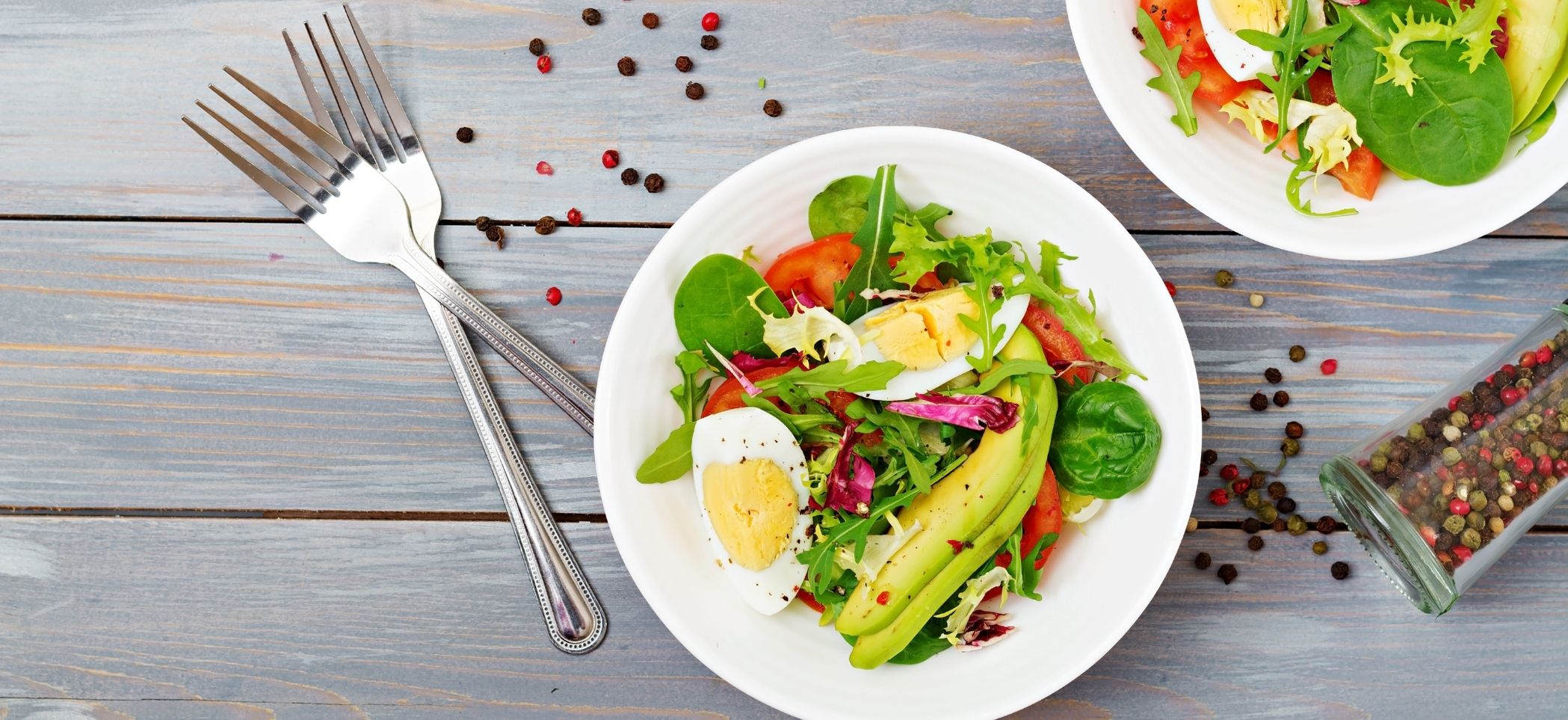Featured article in the Spring 2019 Issue of Nutrition Close-Up; written by Natalie Rizzo, MS, RD
If you ask two different people to define “plant-based eating,” you will likely get two different responses. Because this term isn’t defined by any governing body, it’s up for interpretation.
The Academy of Nutrition and Dietetics (AND) says that plant-based diets include vegetarian and vegan diets1, while U.S. News & World Report describes plant-based diets “as an approach that emphasizes minimally processed foods from plants, with modest amounts of fish, lean meat and low-fat dairy, and red meat only sparingly”2. Regardless of the definition, the common denominator among all descriptions of a plant-based diet is, well, plants!
The rise in popularity of plant-based diets is accompanied by many health benefits. Research suggests that eating mostly plants can prevent obesity3, decrease the risk of developing diabetes4, and lower mortality rates5. Plant-based diets are also associated with lower rates of heart disease6 and cancer7. The majority of these studies observed vegetarian diet patterns, which include plenty of fruits, vegetables and meatless proteins, like eggs, dairy, whole grains, nuts, seeds and soy. In other words, plants were paired with protein sources, like eggs, to make a nutritious and well rounded meal. Eggs can and should be part of a plant-based diet, and these five suggestions showcase how easy it is to incorporate the incredible egg into your plant-forward dishes.
Frittatas
This baked egg dish is best with whatever seasonal veggies and herbs you have on hand. Simply beat eggs, your favorite vegetables, herbs and spices in a bowl. Heat a non-stick skillet over medium high heat and pour in the egg mixture. Cook for 5-10 minutes or until eggs set and remove from heat. Try different flavor variations, like sun-dried tomato, parmesan cheese and basil for a Mediterranean flair or asparagus, radish and goat cheese for a spring twist. Both options contain protein to keep you full and an assortment of vitamins and minerals.
Stuffed Veggies
Did you know that eggs make a great addition to stuffed veggies? Peppers, tomatoes and squash make great vehicles for stuffing. Cut the veggie in half, scoop out the seeds, fill with your favorite whole grain, like rice or quinoa, and top with an egg. For an extra hit of heart-healthy fat, cut a ripe avocado in half and top with cheesy scrambled eggs for breakfast, lunch or dinner!
Put An Egg On It
Whether you’re revamping leftover veggies for a quick dinner or looking for a protein boost on your pizza, there are so many reasons to #putaneggonit. Eggs make a great addition to pasta or frozen veggies, too.
Salad Protein
The base of any good salad is vegetables, but the part that fills you up is the protein8. Next time you’re at the salad bar, load up on as many veggies as you want and top the whole thing off with a hard-boiled egg. Each egg you add will provide six grams of protein and several nutrients, including vitamin D, lutein, riboflavin and choline. Plus, eggs not only provide the carotenoid lutein, but research has found that consuming eggs can help increase absorption of carotenoids from other foods9, and adding eggs to a salad means higher absorption of vitamin E – 7 times as much10!
Snack On Eggs
Research suggests that including protein at snack time can improve appetite and hunger control, which can prevent overeating later in the day11. That makes eggs the perfect addition to your midday plans. Hard boil a batch of eggs early in the week to enjoy as a quick snack. Pair an egg with a side of fruit or veggies and a handful of nuts to get a good balance of protein, carbs and good fats.
Natalie Rizzo, MS, RD is a NYC-based media Dietitian, food and nutrition writer, national spokesperson and owner of Nutrition à la Natalie, a successful sports nutrition blog. Natalie has a Master’s of Science in Nutrition and Exercise Physiology from Columbia University.
References
- Melina V, et al. Position of the Academy of Nutrition and Dietetics: Vegetarian Diets. J Acad Nutr Diet. 2016;116:12:1970-1980.
- U.S. News. Best Plant Based Diets. 2 Jan 2019. Internet: https://health.usnews.com/wellness/food/articles/how-us-news-ranks-best-diets
- Tonstad S, et al. Type of Vegetarian Diet, Body Weight, and Prevalence of Type 2 Diabetes. Diabetes Care. 2009; 32:5: 791-796.
- Ley SH, et al. Prevention and management of type 2 diabetes: dietary components and nutritional strategies. The Lancet. 2014;383:1999-2007.
- Orlich MJ, et al. Vegetarian Dietary Patterns and Mortality in Adventist Health. Study 2. JAMA Intern Med. 2013;173:13:1230.
- Crowe FL, et al. Risk of hospitalization or death from ischemic heart disease among British vegetarians and nonvegetarians: results from the EPIC-Oxford cohort study. Am J Of Clin Nutr. 2013;97:3:597-603.
- Huang T, et al. Cardiovascular Disease Mortality and Cancer Incidence in Vegetarians: A Meta-Analysis and Systematic Review. Ann Nutr Metab. 2012;60:4:233-240.
- Westerterp-Plantenga MS, et al. Dietary protein – its role in satiety, energetics, weight loss and health. Br J Nutr. 2012;108:S2:S105-S112.
- Kim JE, et al. Effects of egg consumption on carotenoid absorption from co-consumed, raw vegetables. Am J Clin Nutr. 2015;102:75-83.
- Kim JE, et. al. Egg Consumption Increases Vitamin E Absorption from Co-Consumed Raw Mixed Vegetables in Healthy Young Men. J Nutr. 2016;146:2199-2205.
- Ortinau LC, et al. Effects of high-protein vs. high- fat snacks on appetite control, satiety, and eating initiation in healthy women. Nutr. J. 2014; 13:97.

